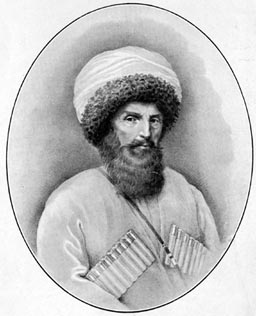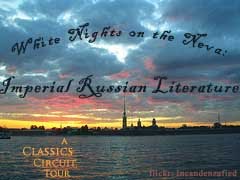REGNUM: Russia's Baltic policy Is Too Soft — Kolerov
|
posted by eagle on October, 2010 as ANALYSIS / OPINION
Russia's Baltic policy is too soft — KolerovRussia's present official policy toward the Baltic states including Estonia is too soft, says Modest Kolerov, editor in chief of the news portal Regnum associated with Russian special services. Kolerov told BNS on Thursday that in his opinion Russia's policy toward the Baltic states is "too soft, insufficiently principled, much too commercial and inconsistent in a bureaucratic fashion.” The Russian expert who was in charge of promoting interregional and cultural relations with foreign countries in the Russian president's administration in 2005-2007 confirmed that Russia's present leaders "do not pin any foreign or internal policy hopes on Russian compatriots in the Baltic states.” "They do not and never did. And the reasons for this are both those of principle, political — it's immoral- as well as practical, technical — it's impossible,” he explained. In Kolerov's words, viewing Russians who live in Estonia as the fifth column and a threat to national security is "one of the most fundamental principles underlying the present-day identity ... >> full
comments (0)
Eurasian Home: THE EXCHANGE
|
posted by eagle on as ANALYSIS / OPINION
THE EXCHANGE
IVAN GAYVANOVYCH, KIEV
Geopolitical influence is an expensive thing. The Soviet Union realized that well supporting the Communist regimes and movements all over the world including Cuba and North Korea. The current Russian authorities also understood that when they agreed that Ukraine would not pay Russia $40 billion for the gas in return for extension of the lease allowing Russia's Black Sea Fleet to be stationed in the Crimea. The most infallible remedy to strengthen the mutual understanding and the relations with a dependent and needy partner is to give it money. Of course, Russia could build several bases, like that in the Crimea, in its territory for such a sum of money. It is difficult to link Russia’s deliberate losses to the Fleet itself, taking into account the depreciation and obsolescence of the warships, especially if to listen to the experts saying that on the whole, the Black Sea Fleet is of little importance in the military and strategic terms. The Russians really have an irrational attitude towards ...
comments (0)
Window On Eurasia: ‘Multitude Of Problems’ Ahead for Upcoming Russian Census, Experts Say
|
posted by eagle on as ANALYSIS / OPINION
Paul Goble
Staunton, October 8 – The 2010 Russian Census which will take place October 14-25 in most places – a few distant locations have already been surveyed – is going to suffer from "a multitude of problems,” experts say, some of which are likely to undercut public confidence in its results and possibly, as happened after the last count, force officials to issue corrections later.
In "Novaya politika” today, Mikhail Diunov recalls what happened during the last census (in 2002) in order to highlight some but far from all of the problems that the current census seems certain to encounter, including official interference, corruption, and both bureaucratic and practical shortcomings (novopol.ru/-vseh-poschitayut-text90949.html).
The 2002 count, he reports, found that "the size of the population did not correspond with the officially declared numbers.” In the Far East and North, officials had overstated the numbers, while in Moscow and Chechnya, they had understated them, differences ...
comments (0)
posted by eagle on as ANALYSIS / OPINION

Imam Shamil (1797-1871)
 Imam Shamil Introduction
Imam Shamil was the political, military, and religious leader of the Caucasian Muslims in their 19th century struggle for national liberation. Shamil, himself a Dagestani, founded Muradism, a movement that united Dagestan and Chechnya in their struggle for freedom against Russian domination. He also advocated the abandonment of the tribal system that had resulted in endless feuds among the Caucasian clans, and attempted to restore Sharia, or Muslim law. The peoples of both Dagestan and Chechnya revered him as their Imam—their divinely inspired religious leader. Shamil exercised a combination of religious, administrative, and military powers. Prince Ilya Orbeliani (brother of Grigol Orbeliani, a prominent Georgian poet and military commander), who spent eight months as Shamil’s hostage, wrote in his book Eight Months in Shamil’s Captivity: [Shamil] stands out for his shrewdness, determination, valor, and personal merits. Shamil’s predecessors, Ghazi Mohammed, Mollah and Hamzat Beg, were killed in 1832 and 1834. The former died during an assault on the Russians. Hamzat Beg was killed in Dagestan ...
comments (0)
posted by eagle on as ANALYSIS / OPINION
Harold Bloom calls Hadji Murad "my personal touchstone for the sublime of prose fiction, to me the best story in the world, or at least the best that I have ever read.” Bloom argues throughout his book "that originality, in the sense of strangeness, is the quality that, more than any other, makes a work canonical.” Bloom obviously feels that Hadji Murad qualifies for originality and strangeness since "Whatever we take the canonical to be, Hadji Murad centers it in the Democratic Age.” (from Harold Bloom’s chapter "Tolstoy and Heroism” in The Western Canon) What makes Hadji Murad ironic is that, in 1896, Tolstoy published What is Art? which questions the values literature can impart. In the essay, Tolstoy takes a critical look at, among other writers, Shakespeare and the Greek tragedians. Tolstoy argued that art should promote brotherhood and Christian-like ethics, qualities he believed the cited authors did not support in their works. Yet soon after What is Art? was finished, Tolstoy began working on Hadji Murad, a blend of Shakespeare’s characterizations and ...
comments (0)
|
























